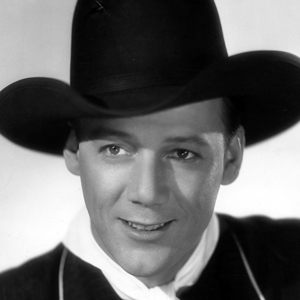Bob Nolan wasn't a cowboy in real life, but he played one in the movies. As a
founding member of the seminal Western group the Sons of the Pioneers, Nolan
wrote classics like "Tumbling Tumbleweeds" and "Cool Water," and helped
crystallize the enduring image of the singing cowboy.
Born Robert Nobles in Canada, Bob was shuttled around a lot
after their parents divorced. By the time he was 13, Bob was living in Arizona
with his dad, a charming ne'er-do-well who fancied himself a vagabond and
adventurer. Bob inherited the same spirit. After marrying his high school
sweetheart and having a child, he ran off, drifting around the country, hopping
trains, writing songs and singing on a tent-show circuit. It was during this
time that he fell in love with the wide-open spaces and the haunting sound of
the late-night train whistle — cowboy images that would populate many of his
greatest songs.
By the early 1930s, Nolan had settled in Los Angeles, where he befriended a
young truck driver and aspiring singer named Leonard Slye, who would later be
better known as Roy Rogers. Nolan, Slye and another singer-songwriter, Tim
Spencer, formed the Sons of the Pioneers. Tapping into a burgeoning nostalgia
at the time for the Old West, the trio dressed in cowboy garb and sang saddle
serenades in intricate three-part harmony. Joined by brothers Hugh and Karl
Farr, they began recording for Decca Records in 1934.
Nolan's influential songs mixed Western lyrical themes with pop melodies, an
idea that remains a vital element in country music to this day. In addition to
the Western standards "Tumbling Tumbleweeds" and "Cool Water," some of Nolan's
other notable compositions include "Way Out There," "One More Ride," "Down the
Trail," "Moonlight on the Prairie" and "Round-Up in the Sky."
Between 1935 and 1949, Nolan appeared in 88 films and movie shorts, co-starring
alongside Bing Crosby and Gene Autry. After leaving the group in 1949, he spent
the next few decades living in California, concentrating on his songwriting.
Nolan's songs enjoyed a revival in 1959, when Marty Robbins covered "Cool
Water" on his classic Gunfighter Ballads and Trail Songs
album.
In 1980, a few months before he died, Nolan recorded his last album, called
The Sound of the Pioneer. Appropriately, for a man who wrote and sang
about the cowboy life, his ashes were scattered over Red Rock Canyon in Nevada.
